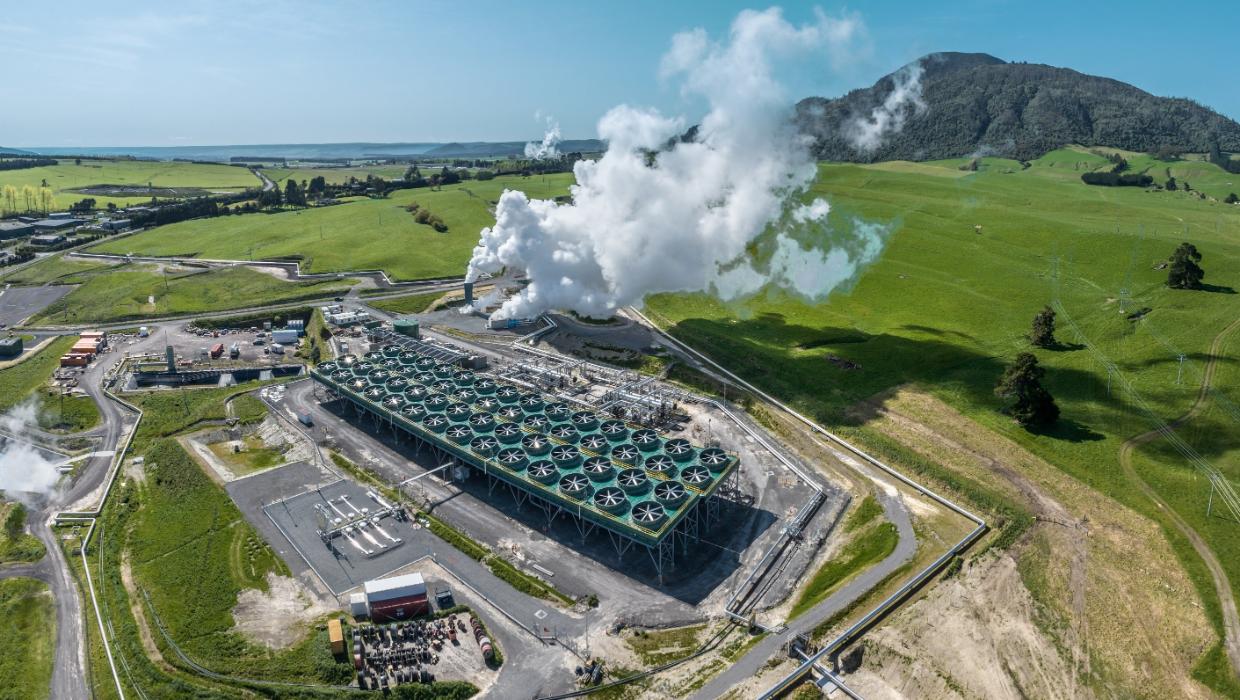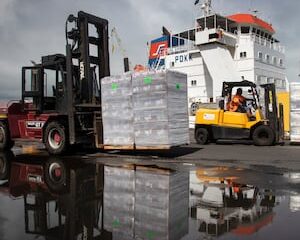Business
Taranaki Firms Shift Focus to Geothermal Energy Sector

Industrial companies based in Taranaki are increasingly turning their attention to the geothermal energy sector in Taupō as local oil and gas production continues to decline. Notable firms such as Dialog Fitzroy, JLE Electrical, Entec, and Warner Construction are expanding operations beyond Taranaki’s traditional energy sources. This shift comes in response to a significant decrease in regional gas production, which fell by 20% in 2024 compared to the previous year, while oil production dropped by 14%.
Geothermal energy is rising in prominence, contributing approximately 20% of New Zealand’s electricity in 2025, a substantial increase from a mere 7% share in 2000, according to the Ministry of Business, Innovation and Employment. As the oil and gas sector slows, these companies are adapting to new market conditions.
Strategic Moves by Taranaki Companies
Dialog Fitzroy, previously known as Fitzroy Engineering, is actively pursuing broader energy infrastructure to sustain its operations. Managing Director Kerry Williamson commented on the company’s strategy: “We recognize the decline in oil and gas and pushed into new sectors. Geothermal is just one avenue.” The company has opened offices in various locations, including Taupō and Wellington, as well as in Brisbane, Queensland, positioning itself close to major project sites.
Williamson emphasized that the success of Taranaki companies in diversifying reflects a crucial “adapt or perish approach.” He noted, “We’re seeing companies succeed in those markets, and that’s a great measure of what’s been built here.”
Similarly, JLE Electrical has been active in Taupō since 2007, recently expanding its local presence with a new office. Chief Executive Michael Pigott pivoted the business towards power generation and water markets after observing the decline in oil and gas following the 2018 offshore exploration ban, which has since been lifted. “We started looking at power generation and water markets,” Pigott explained, highlighting the company’s commitment to heavy industrial work.
The firm has also branched into the dairy industry from its Hāwera location, while maintaining a presence in the Papua New Guinea mining sector since 2016. Pigott believes that despite the downturn in the traditional energy sector, opportunities remain in Taranaki. He stated, “It’s not what it was before, but infrastructure will need to be built here.”
Renewable Energy Growth and Challenges
Entec, another key player, reported a significant transformation in its revenue streams. Chief Executive Rob Evans indicated that the company’s reliance on oil and gas has decreased from 80% to approximately 25% over the past eight years, with much of the new revenue derived from renewable energy projects. Entec has had personnel working in the Taupō region since the construction of the Tauhara power station in 2021 and is set to engage with the Te Mihi plant next year.
Meanwhile, Warner Construction has been involved in the Taupō area for nearly 15 years, contributing to projects like the Te Mihi steam field pipeline. Managing Director Adam Warner noted that while oil and gas work remains a critical part of their business, geothermal energy and broader energy transition projects have become significant growth areas. “We’re seeing a healthy balance across both regions rather than one outweighing the other,” he stated.
The outlook for the geothermal industry appears positive, with ongoing investments and sustainability initiatives. Kelvin Wright, Chief Executive of Te Puna Umanga Venture Taranaki, remarked on the region’s engineering and manufacturing strengths, asserting its role in shaping New Zealand’s industrial future. He highlighted the challenges posed by current economic conditions but noted that local businesses are responding with determination to adapt their skills and expertise to exploit new market opportunities.
Wright emphasized, “Supporting industry to expand into these opportunities is essential to keeping the highly skilled workforce engaged and maintaining regional capability.” He added that the region is actively seeking new industrial investment opportunities both locally and internationally to accelerate growth and scale for the local industry.
As Taranaki firms navigate this transition, their efforts to embrace the geothermal sector exemplify a proactive approach to changing energy landscapes, ensuring their continued relevance and operational success in a competitive market.
-

 Sports2 months ago
Sports2 months agoNetball New Zealand Stands Down Dame Noeline Taurua for Series
-

 Entertainment2 months ago
Entertainment2 months agoTributes Pour In for Lachlan Rofe, Reality Star, Dead at 47
-

 Entertainment1 month ago
Entertainment1 month agoNew ‘Maverick’ Chaser Joins Beat the Chasers Season Finale
-

 Sports2 weeks ago
Sports2 weeks agoEli Katoa Rushed to Hospital After Sideline Incident During Match
-

 Sports2 months ago
Sports2 months agoSilver Ferns Legend Laura Langman Criticizes Team’s Attitude
-

 Politics1 month ago
Politics1 month agoNetball NZ Calls for Respect Amid Dame Taurua’s Standoff
-

 Entertainment3 months ago
Entertainment3 months agoKhloe Kardashian Embraces Innovative Stem Cell Therapy in Mexico
-

 Sports2 weeks ago
Sports2 weeks agoJamie Melham Triumphs Over Husband Ben in Melbourne Cup Victory
-

 World4 months ago
World4 months agoPolice Arrest Multiple Individuals During Funeral for Zain Taikato-Fox
-

 Sports3 months ago
Sports3 months agoGaël Monfils Set to Defend ASB Classic Title in January 2026
-

 Entertainment2 months ago
Entertainment2 months agoTyson Fury’s Daughter Venezuela Gets Engaged at Birthday Bash
-

 Sports2 months ago
Sports2 months agoHeather McMahan Steps Down as Ryder Cup Host After Controversy















